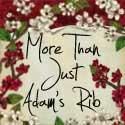 If you've ever had the thought, "Why doesn't Israel just give back the land, and then there will be peace." If you've ever wondered why the Middle East is constantly in upheaval with nation against nation. If you've ever asked why Muslims hate Christians and Jews so much.
If you've ever had the thought, "Why doesn't Israel just give back the land, and then there will be peace." If you've ever wondered why the Middle East is constantly in upheaval with nation against nation. If you've ever asked why Muslims hate Christians and Jews so much.If any of these statements describes you, then pastor and author Bryant Wright's newest book, Seeds of Turmoil: The Biblical Roots of the Inevitable Crisis in the Middle East is a must read.
When I saw the cover, I'll admit that I expected my head to hurt reading some high-brow critical analysis concerning the intersection of Scripture and history. But nothing could be further from the truth. Wright's style is clear, extremely easy to follow, and at a mere 167 pages, a great education in three-night's read.
Part One explores the Biblical story of Abraham, Sarah, Hagar, and the two sons, Isaac and Ishmael. Wright details where the conflict between the three major world religions began in relation to these biblical individuals and then gives a "where are they now" look at Abraham's descendants in relation to the countries in the Middle East.
Part II then explains Abraham's story from the Jewish, Islamic, and Christian perspective, thereby providing the reader with an understanding of the constant in-fighting and hatred that still exists today in the Middle East.
Surprisingly for this uber-critical reader, the only critique I have is that Part One of the book is extremely repetitive. After describing the outline of the Abraham story, Wright rehashes the same ideas in the "Sarah and Hagar" chapter and then again in the "Isaac and Ishmael" chapter. Since there is a Study and Discussion Guide at the end, I understand his logic in dividing the story up into sections to be discussed in a weekly small group setting, but for the individual reader going through the text, it made me yawn, "Yes, yes, yes, you've said that already. Get moving..."
Overall, if you're well versed in Old Testament history and if you've followed the political climate in the Middle East so that you know the who's who of Isaac and Ismael's modern-day descendants, then this book is mere review of the basics.
However, if you are the average person who doesn't really know much about the connection between Old Testament times and the modern situation in the Middle East, I would definitely recommend this as a great "starter" book..








No comments:
Post a Comment